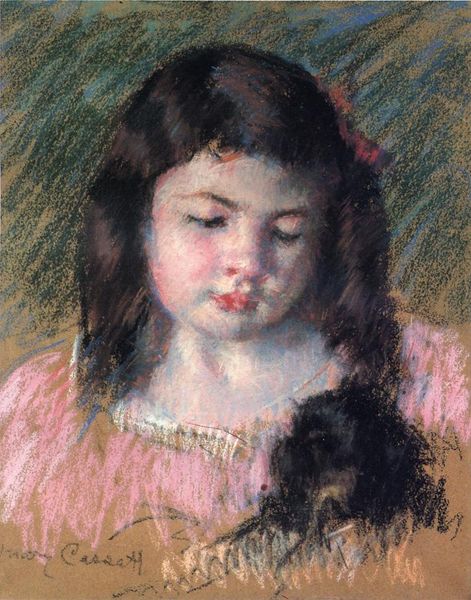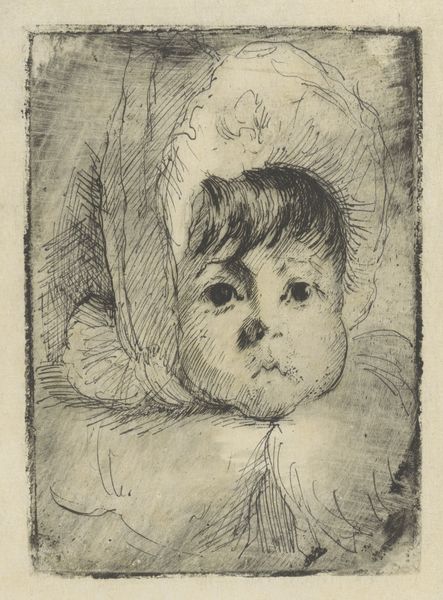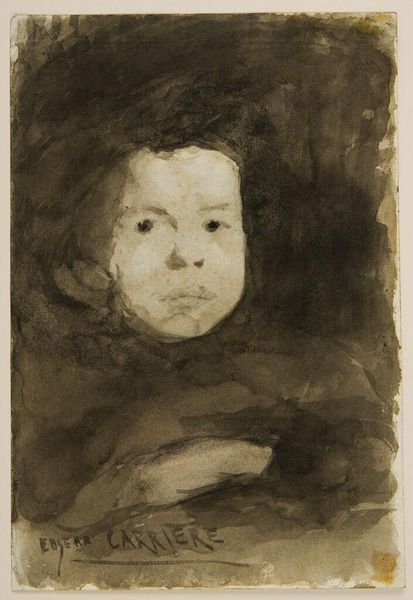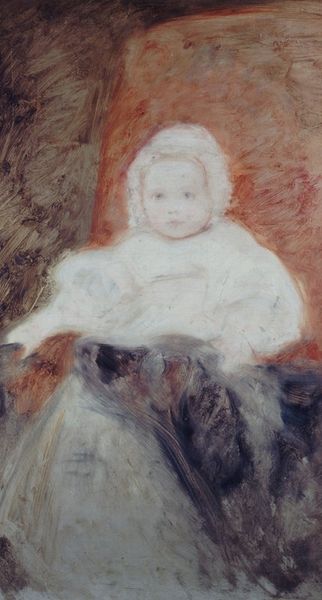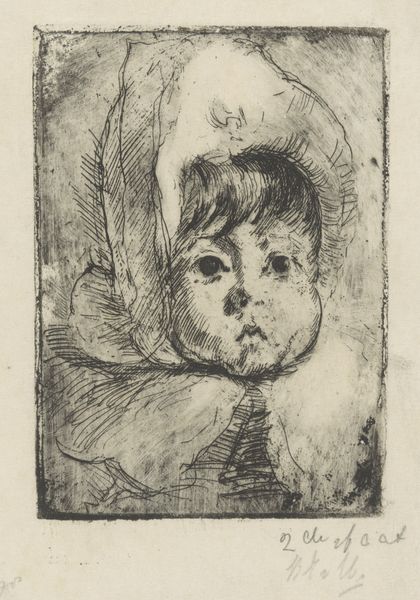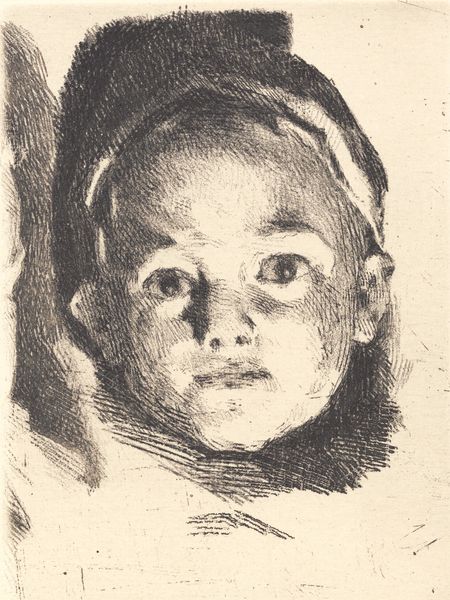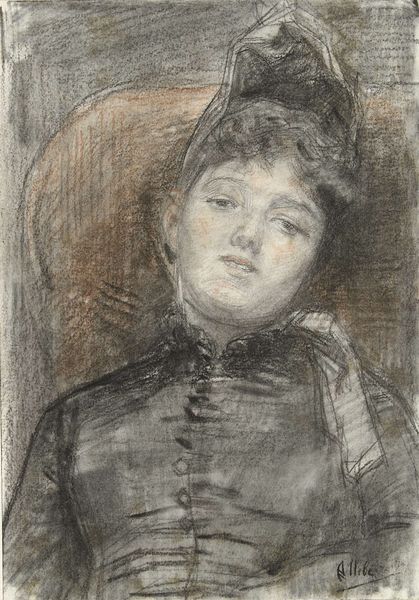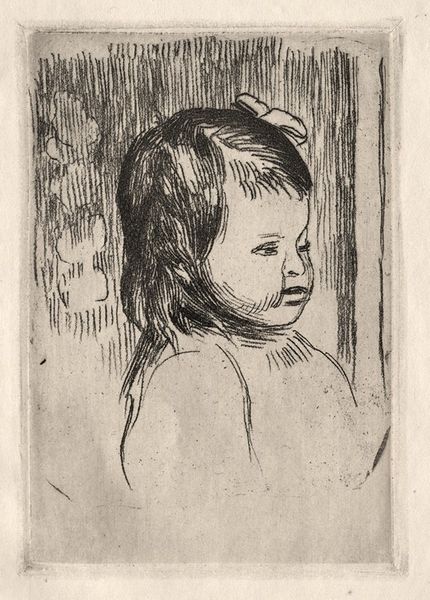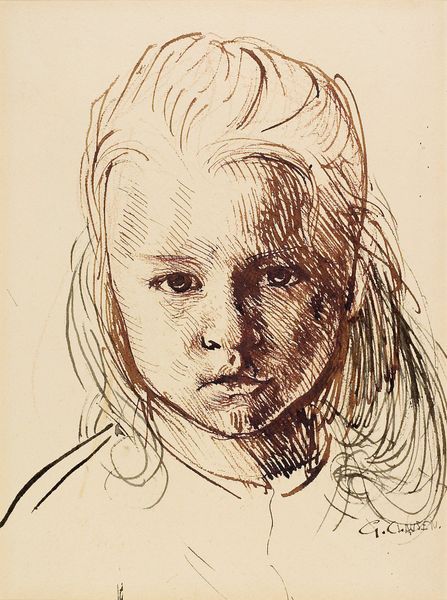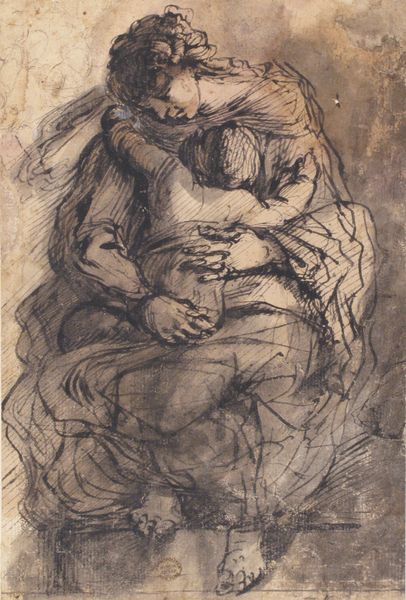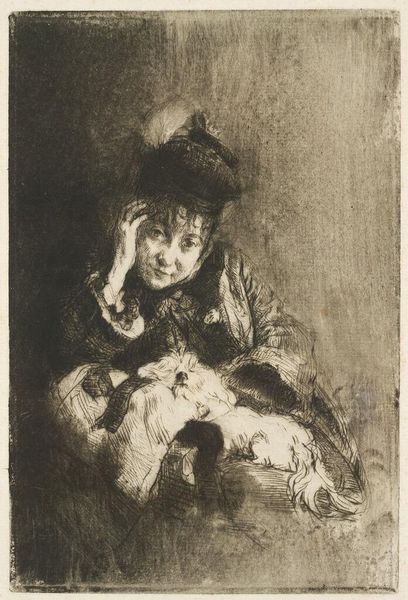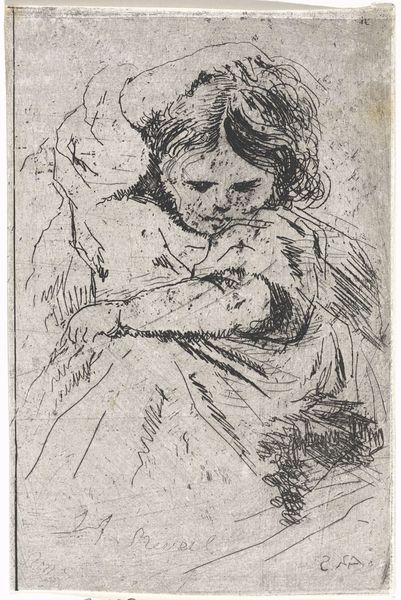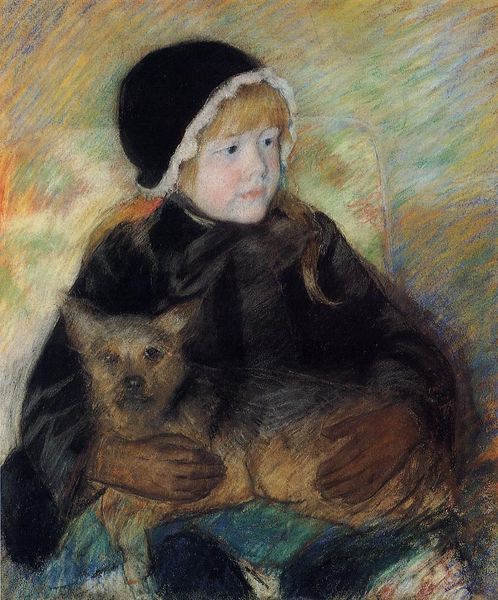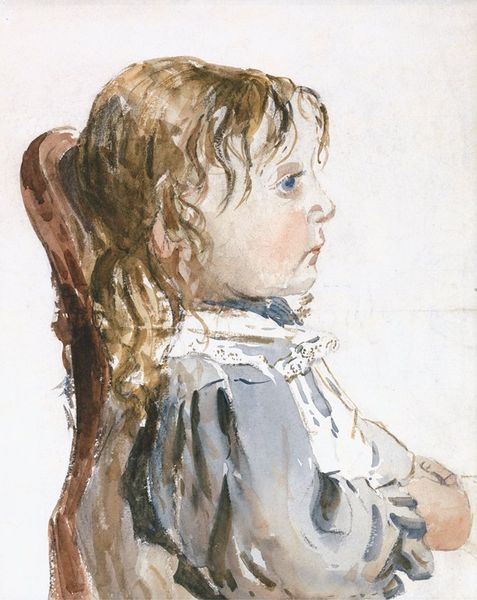
Copy of a Girl in Van Dyck's portrait of The Wife of Colyn de Nole and her daughter 1859
0:00
0:00
#
possibly oil pastel
#
oil painting
#
fluid art
#
acrylic on canvas
#
underpainting
#
animal drawing portrait
#
portrait drawing
#
watercolour illustration
#
surrealist
#
lady
#
watercolor
Copyright: Public domain
Editor: This is John Ruskin’s “Copy of a Girl in Van Dyck’s portrait of The Wife of Colyn de Nole and her daughter,” created in 1859. It appears to be made with watercolors, and something about the tonal range evokes a feeling of somber introspection. What do you make of Ruskin's rendering here? Curator: Observe the masterful manipulation of light and shadow, shaping the composition and directing our gaze. The deliberate application of watercolor creates a study in tonal contrast. Notice how the stark white of the child's face juxtaposes with the deeper browns of the background, achieving a certain emotional depth, would you agree? Editor: Yes, I definitely see that contrast and the resulting depth. Is he intentionally trying to emphasize the delicate innocence of the child? Curator: Perhaps. More pointedly, though, examine the interplay of lines: thin and precise in rendering the child’s features, broader and more gestural in describing the dress. He seems concerned with rendering forms while also exploring the inherent qualities of the medium. Notice also, that despite being a copy, Ruskin makes distinct choices about which details to include or omit, thereby engaging with the source material on a formal level. What are your thoughts on that? Editor: That makes perfect sense. It's not simply imitation but a translation through Ruskin's unique artistic language. I hadn't considered how the act of copying could be an interpretive process in itself. Curator: Precisely. It speaks to the way he grapples with visual structure and expressive potential of art itself. A useful insight, I hope. Editor: Absolutely, thank you! I see so much more now.
Comments
No comments
Be the first to comment and join the conversation on the ultimate creative platform.
